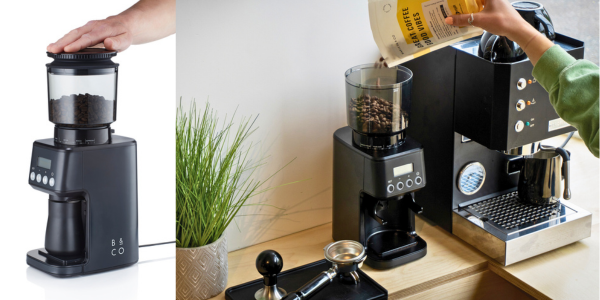Are Cold Brew and Iced Coffee the Same?
In the world of iced caffeinated beverages, the terms "cold brew" and "iced coffee" are often used interchangeably, leading to confusion among coffee enthusiasts and casual drinkers alike. However, despite the shared trait of being served cold, these two beverages are distinct in their brewing methods, flavour profiles, and even the cultures that surround them. In this comprehensive blog post, we'll explore the nuances that set cold brew and iced coffee apart, providing clarity for those looking to navigate the chilled coffee landscape.
Cold Brew vs. Iced Coffee: The Brewing Methods
Let's start by examining the fundamental difference between cold brew and iced coffee—their brewing methods.
Cold Brew: A Patient Extraction Process
Cold brew is known for its unique and patient brewing process. Coarse coffee grounds are steeped in a cold brew coffee maker for an extended period, typically ranging from 12 to 24 hours. This slow extraction at lower temperatures results in a smooth, less acidic coffee concentrate.
The coarse grind helps prevent over-extraction, and the extended steeping time allows for a gradual extraction of flavours, giving cold brew its distinctive taste. Once the steeping is complete, the coffee concentrate is usually diluted with water, milk, or alternative milk options before being served over ice.
Iced Coffee: A Quick Chilling Method
On the other hand, iced coffee is a more straightforward and quicker brewing method. It involves brewing hot coffee using traditional methods, then rapidly cooling it down and serving it over ice. The hot brewing process extracts flavours more quickly, and the resulting beverage retains the characteristics of traditionally brewed coffee, including its acidity and brightness.
Flavour Profile: Smooth Elegance vs. Quick and Crisp
The flavour profile is where the distinction between cold brew and iced coffee becomes particularly pronounced.
Cold Brew: Smooth and Less Acidic
Cold brew is celebrated for its smooth, mellow taste. The extended steeping process extracts compounds differently from hot brewing methods, resulting in a beverage that is less acidic and boasts subtle sweetness. This makes cold brew an ideal choice for those who find traditional hot coffee too sharp or bitter.
The flavour notes of cold brew can vary widely based on factors such as the origin of the coffee beans and the roast level. Common descriptors include chocolatey, nutty, and even fruity or floral undertones.
Iced Coffee: Retaining Traditional Coffee Characteristics
Iced coffee, being a product of hot brewing methods, maintains a caffeine content comparable to its hot counterparts. While it offers a refreshing way to consume coffee, especially in warmer weather, its caffeine strength aligns with what coffee drinkers are accustomed to from traditionally brewed coffee.
Caffeine Content: Potency in Chilled Form
The caffeine content in cold brew and iced coffee can also differ, contributing to the overall experience for consumers.
Cold Brew: Potent Elixir
Cold brew is renowned for its higher caffeine concentration. The extended steeping period allows for a more thorough extraction of caffeine from the coffee grounds. Despite its potent caffeine content, the smoothness of cold brew can create a perception that it is less strong than traditional hot coffee.
Iced Coffee: Familiar Strength
Iced coffee, being a product of hot brewing methods, maintains a caffeine content comparable to its hot counterparts. While it offers a refreshing way to consume coffee, especially in warmer weather, its caffeine strength aligns with what coffee drinkers are accustomed to from traditionally brewed coffee.
Cultural Significance: From Kyoto to Mainstream
Understanding the cultural contexts and origins of cold brew and iced coffee adds another layer to their distinction.
Cold Brew: Kyoto and Specialty Coffee Culture
Cold brew has historical roots, with the Kyoto-style cold brew gaining popularity in Japan centuries ago. The slow-drip method, where cold water slowly filters through coffee grounds, influenced the modern cold brew trend.
In recent years, cold brew has become a symbol of specialty coffee culture. Artisanal coffee shops and dedicated cold brew brands have emerged, offering a premium experience that extends beyond the simple act of consuming coffee.
Iced Coffee: On-the-Go and Mainstream Appeal
Iced coffee, on the other hand, has a more utilitarian origin. It was initially a convenient solution for those seeking a chilled coffee fix on the go. As iced coffee gained popularity, it became a staple in mainstream coffee culture, available at almost every coffee shop and fast-food chain.
Conclusion: Chilled Choices for Every Palate
In conclusion, while both cold brew and iced coffee share the commonality of being served cold, their differences in brewing methods, flavour profiles, caffeine content, and cultural significance set them apart. Cold brew offers a sophisticated and patient brewing process, resulting in a smooth and less acidic elixir with a higher caffeine kick. On the other hand, iced coffee provides a familiar coffee experience in a chilled form, retaining the characteristic flavours of traditionally brewed coffee.
Whether you find yourself drawn to the elegant allure of cold brew or prefer the crisp familiarity of iced coffee, the chilled coffee landscape offers choices for every palate. As coffee culture continues to evolve, these two beverages stand as prime examples of how innovation and tradition can coexist in the ever-expanding world of caffeinated delights. So, the next time you crave a cold coffee fix, consider the nuances of cold brew and iced coffee, and choose the brew that aligns with your taste preferences and the experience you seek.








Leave a comment